Spotted recently. I’m slow on the uptake, so it’s quite likely that these trends are all months or years old and I’ve just picked up on them.
- Campers, as a term for people hanging out all day on their laptops in cafés. Spotted in this Instagram post of Alper’s, where he writes, in part, “There is a coworking space separate from the cafe which stems hopeful that this place will not be overrun by campers.”
- Dry Snitching, as a term for admitting to your own illegal behaviour in writing or song; heard in an interview with Dan Auerbach this morning on CBC Q this morning.
- Apparently wearing Birkenstocks with socks, which was de rigeur in the 1980s, is back. At least according to my young millennial friend Ila.
- Speaking of millennials, my old friend Yvonne, a parent of three of them, tells me that what we of the previous generation know about dating and romance has been rewritten, and everything’s more fluid and less serious.
Meanwhile, according to the 2018 edition of The Old Farmer’s Almanac, there’s something called doga now, which is yoga that you do with your dog.
At Hon. David MacDonald’s Tuesday morning seminar this week, the final one of his summer series, the topic was “Is Reconciliation Possible? Why do we need to unsettle the settler?”
As part of his introduction to the topic, David played an excerpt from a speech by The Right Reverend Jordan Cantwell, Moderator of the United Church of Canada.
In her speech, Cantwell discusses the repudiation of the Doctrine of Discovery by the Church; by way of example she tells the story of the Saskatchewan Conference of the Church, faced with an ideological fork in the road. The Conference holds lands, called the “Moats Lands,” that were donated to it, and that generate substantial revenue from natural resources. How could the Church repudiate the Discovery Doctrine while, at the same time, profit from lands that it owned as a direct result of that same Doctrine?
In the discussion that followed, I talked about how I spend my daily life, in essence, responding to bug reports.
I talked about how, when you spend enough time shining light in the dark recesses of a digital system, addressing its bugs and trying to add missing features, sometimes you reach a point where you realize that the digital system’s fundamental design is one substantially unsuited to the task for which it’s being used.
Most of the time there’s little you can do about this, other than to continue to patch the system as best you can, for there’s seldom appetite for, nor resources for, reconceiving of systems in a substantial way (and, when there is, such efforts often fail on an epic scale).
I characterized the United Church’s Moats Lands conundrum as a “bug” in the Church’s system, one that was ultimately (at least partially) patched by a decision to redirect the revenue from the lands to aboriginal hands.
The larger question, though, is whether the United Church, and everything it represents as a proxy for progressive western Christianity, is a system that can continue to be patched (with regard to Discovery Doctrine), or whether the very basis upon which the Church exists is based on a fundamentally broken set of assumptions.
I don’t know the answer to that, but I think it’s worth asking; Cantwell’s words suggests, in fact, that the Church is asking itself these questions, and in that there is hope.
I registered a new domain name earlier this week, and in the days since a deluge of spam–”let us design your new website,” “let us design your logo,” “guaranteed SEO!” and the like–has descended upon me, the likes of which I’ve never experienced.
They all went into my junk mail bin.
I’ve never been inclined to pay for anonymous domain name registration, partially because of frugality, but mostly because I think the domain name system should be open and transparent. But now I’m reconsidering.
“Coming up, Patricia Bosworth relives the day she sent a fax to Marlon Brando’s dog, and got a response…”
Nobody gives promo like Alec Baldwin gives promo.
During the solar eclipse, I was busy eating shrimp on the patio of the Olde Dublin Pub with visiting friends from Saskatchewan; I am an astronomical failure.
Casey Neistat, though, made a delightful video about his pursuit of totality.
I’ve had this Edison Record case (empty, alas) on my shelf for years; so long that I’ve forgotten how I got it.
Tonight I finally got to hear what its missing contents sounded like: For Love and Honor was digitized by UC Santa Barbara Cylinder Archive.
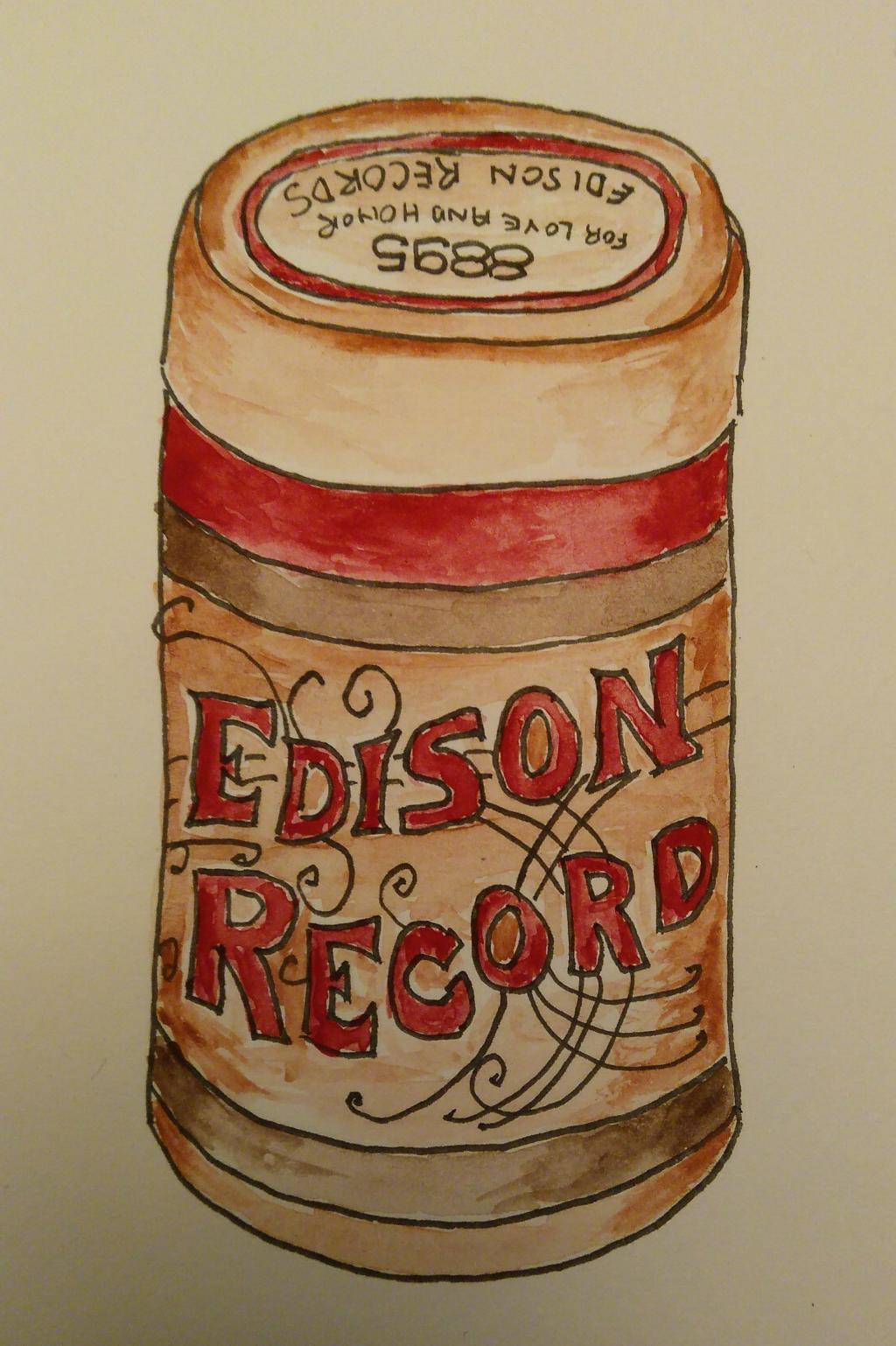
As much as I’m delighted at the thought of a diary bar, I felt it only right to correct the record.
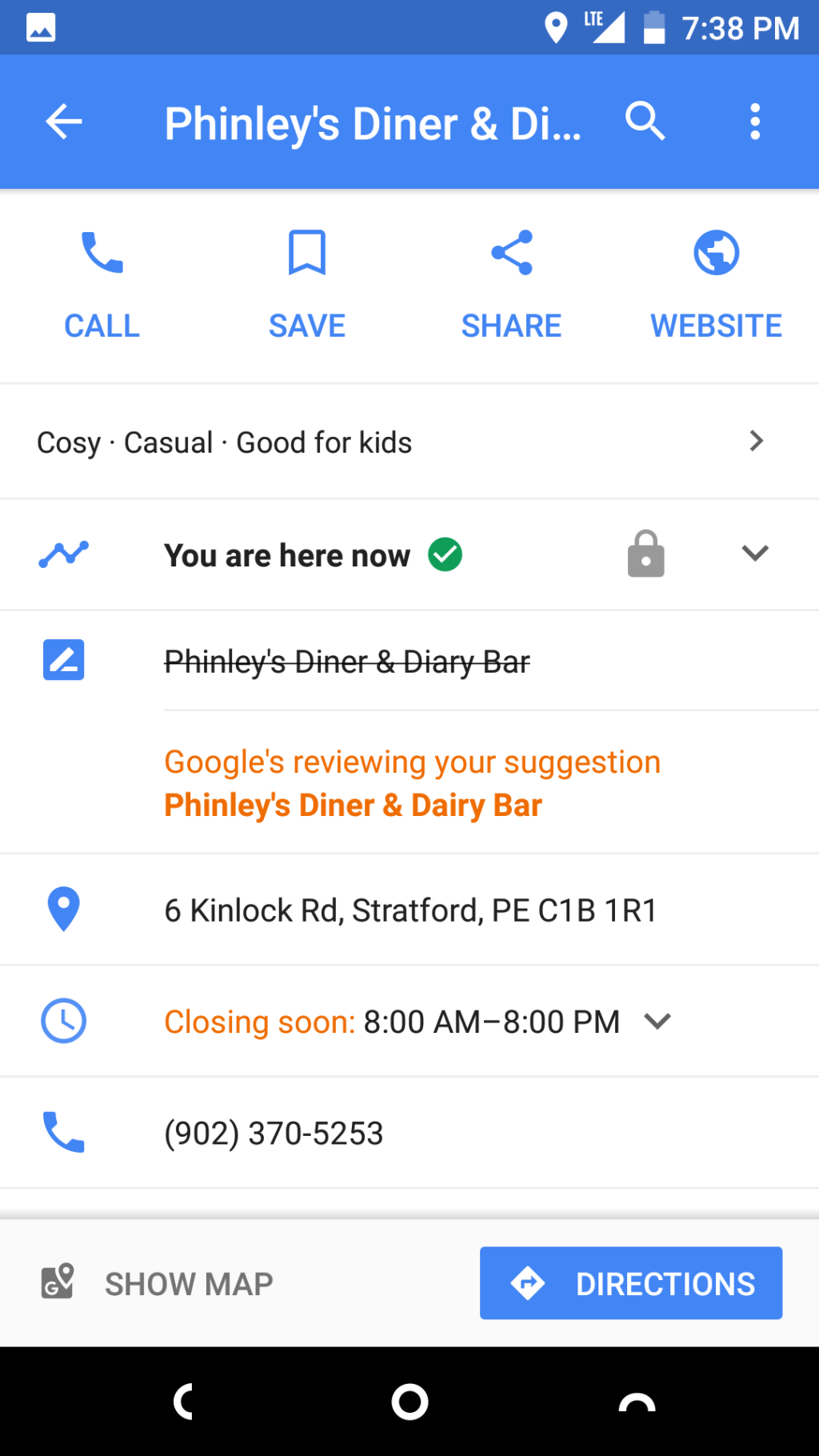
The sunflowers on our dining room table started to shed yellow today; I decided to seize the opportunity to experiment.
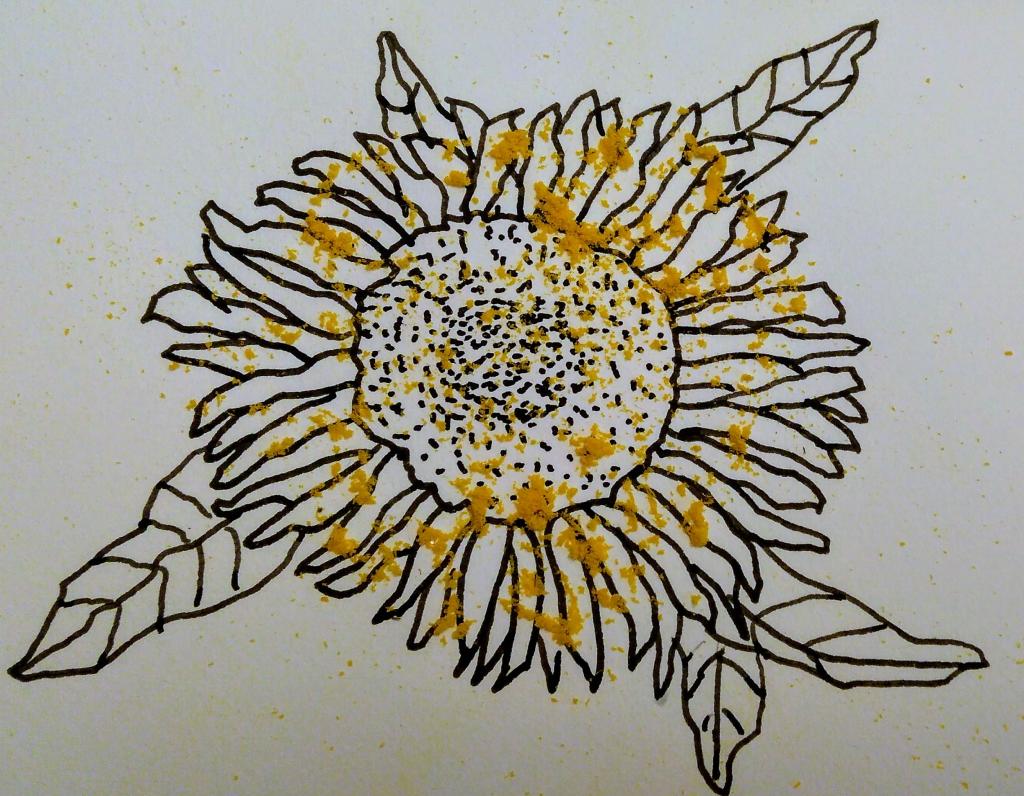 ,
, 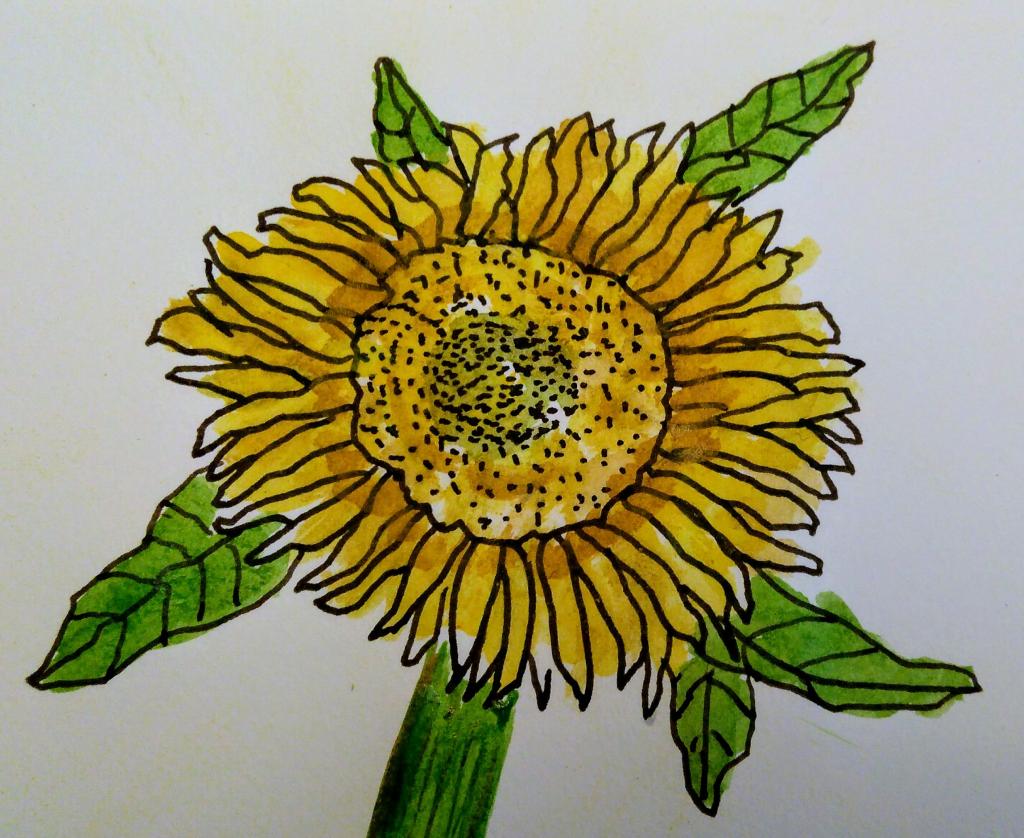 ,
, 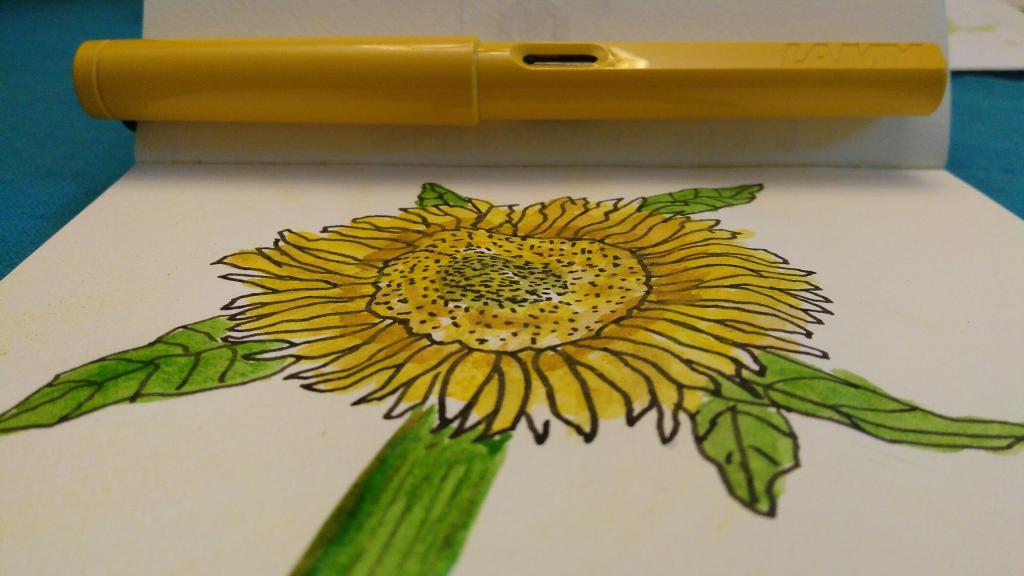
Oliver was very passionate about getting a chance to speak at the “Inaction is Not an Option” rally today here in Charlottetown, organized to give Islanders a chance to gather to speak out against racism, hatred, white supremacy and nationalism.
The organizers generously allowed his name to be added to the speakers list at the last minute; he chose two passages to read, one from Sadako and the Thousand Paper Cranes, and one from Martin Luther King Jr.’s “I Have a Dream” speech.
I have never been prouder: Oliver has a deep-seated aversion to inequity, violence and hatred, and feels a strong common cause with anyone whose intrinsic worth is threatened.
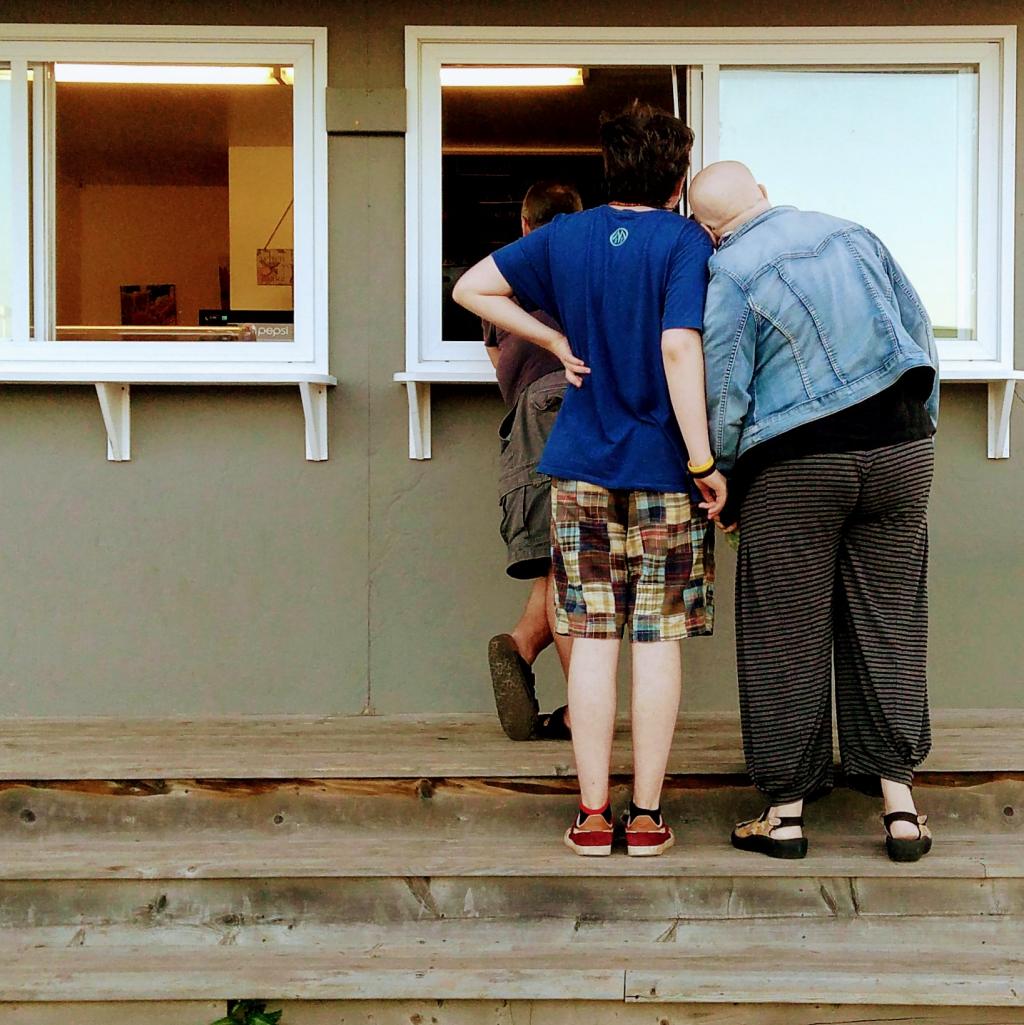
 I am
I am